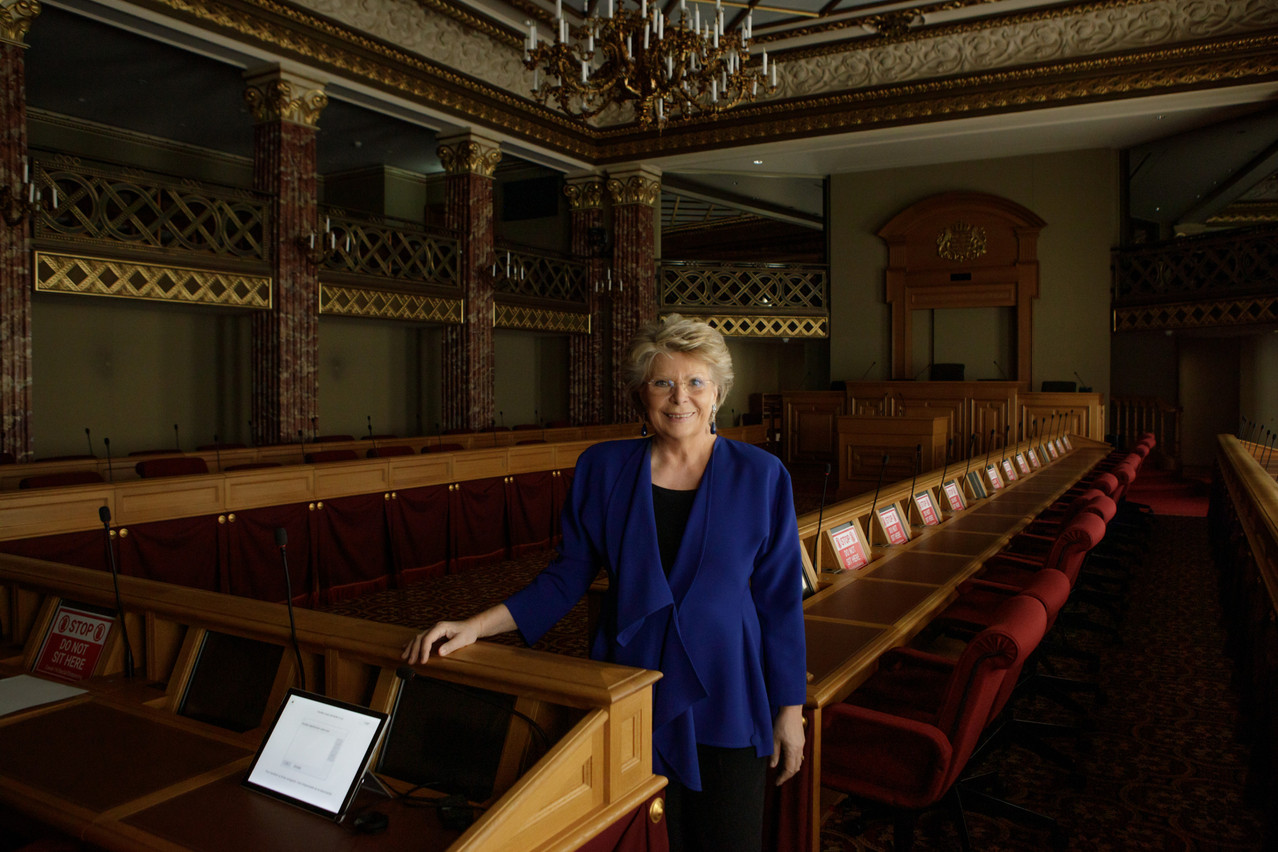You you will retire from active politics on 1 October, after a 43-year career. Is this a decision you have been thinking about for a long time?
. - Yes, I have been thinking about it for about two years. One thing was certain, I didn't want to go to the legislative elections in 2023, that was clear. I have been through 10 elections (Viviane Reding was elected to the European Parliament in 1989, 1994, 1999, 2004, 2009 and 2014, and also to the Chamber of Deputies in 1979, 1984, 1989 and 2018, after having been a member of the municipal council of Esch-sur-Alzette between 1981 and 1999, the municipality from which she originates, editor's note), and I have seen that when I was in the lead in an election, I won it. But if I was in the middle of several candidates, I was always frustrated. I am a take-charge person, a problem solver, a solution finder, and I feel very uncomfortable when I have to be in the back seat.
I know how to win elections, but I need to have the freedom to do it."
Do you think you would have been in the rearguard in October 2023?
"I don't know, but I didn't want to go through the last election again, for me that was clear. I know how to win elections, but I have to have the freedom to do it.
And you felt less free precisely?
"I felt like one of many, and I didn't like it as much. I could have won the next parliamentary elections, but I had decided not to run again in 2023. Then I thought for a long time about how to retire from active political life, and I decided to do it a year before so that a new candidate could enter parliament and have a year to prepare and make himself or herself known. I could have finished my mandate, but I didn't think it was fair.
It is , 32 years old, and vice-president of the CSV, who should take over from you, according to the results of the 2018 legislative elections, in the Centre constituency where you ran...
"I don't think she's confirmed to take over from me yet, but whoever it is, he or she will have a year to make themselves known. I don't want to talk about who will follow and who won't.
You have decided to resign as a member of parliament and not to participate in the 2023 parliamentary elections. Is it because you fear that the CSV, although the largest party in the country in terms of votes, will once again find itself in the opposition and not in the coalition of the next government?
"No, I am not.
If I had been a minister, I should have stayed in Luxembourg. After 10 years of national mandate as an MEP, I decided to go for European positions. It was very clear to me that this was what I wanted to do.
Will you continue to be active in the CSV?
"If they ask for my help, I will always be there to help them. I will be able to do mentoring without any problem.
For the next elections, what prospects do you see?
"I prefer not to comment on local politics.
If we look at your CV, we can see that there is one position that you have not yte held, that of a minister at national level. Did such a position not interest you?
"If I had been a minister, I should have stayed in Luxembourg. After 10 years of national mandate as an MP, I decided to go for European positions. It was very clear to me that I wanted to do that, and I was lucky enough to be able to do it.
Have you ever been offered a ministerial post?
"Yes, but nothing that interested me.
When you started your career in politics, did you already have the European Union in mind?
"My mentor was Pierre Werner (former CSV Prime Minister from 1959 to 1974, then from 1979 to 1984, editor's note). I learned two fundamental things from him: how to build a country and how to save it. When I came into politics, there was the steel crisis, and the know-how of the Prime Minister in solving this disaster impressed me. Luxembourg was the first country in Europe that had taken the necessary steps to prevent it from becoming insolvent. At the same time, this gentleman was building an alternative to a mono-industrial system - which is very dangerous - the financial centre, and he took the risk of supporting the world's leading non-military satellite industry, SES. I saw how you hold a country, how you save it, how you prepare its future, wow!
At the same time, he always told me that there would only be a strong Luxembourg in a strong Europe. It was also this man who created the euro, so I saw the best politician we had ever seen at work. I said to myself that if I wanted a strong, sovereign and independent country, it could only work in a strong Europe, which guarantees the balance between the countries, that was my goal. Afterwards, I was able to go to the European Parliament where I could learn. I was ready to take it in hand, I knew how to solve problems and analyse something I didn't know."
The article was first published in and has been translated by Delano.

